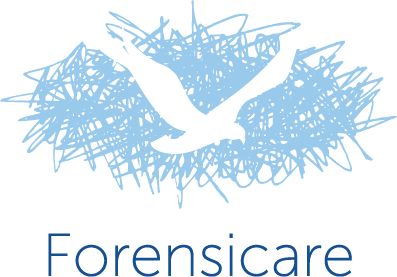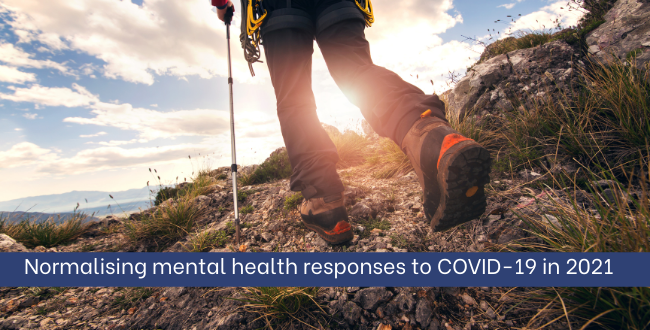Normalising mental health responses to COVID-19 in 2021
Recently, the reflective practice team at Thomas Embling Hospital came together to reflect on our experiences – emotional and otherwise – in response to the continually changing COVID-related health and social landscape.
This pandemic has generated, fuelled and intensified a wide range of emotional responses during the past 12 months, and it has continued to do so in the past days and weeks–especially with our recent 5-day lockdown.
Although it has become commonplace (perhaps even cliché to say), it remains true that however you are feeling – it is okay, and anything goes. Just as it has always been, there is no ‘wrong’ or ‘right’ way to feel about the ongoing impact of COVID-19 on our lives. This certainly became apparent for the three of us as we reflected on our varied experiences and reactions over the past several weeks.
This edition of The Ascent, our staff mental health newsletter we share with you publicly today, reminds us how as individuals, we can have such different responses to change.
It also highlights how continual self-awareness and acceptance can be pathways to support our resilience.
Physiological and mental health impacts of a snap lockdown
The snap lockdown a few weeks ago might have come as a shock to many. As a result, we might be feeling on-edge–even now as restrictions have eased. We may notice an almost visceral reaction to the announcement of any new cases or the changing of restrictions, both here and globally. This reaction might have become almost instinctive. An uneasy feeling in your gut, a tingling sensation on your skin. We might notice this physiological response before any awareness as to what thoughts we might be having.
Others might be feeling frustrated or angry, finding themselves asking the question, ‘when is this going to end? We can’t live like this forever!’
We may notice resentment creeping (back) in, or a general irritability seeping into our daily lives.
Feeling fearful and anxious
Some of us might notice that we are fearful and anxious, afraid of going out too much or visiting too many people, steering clear of public places and weary of returned travellers. We may be worried and almost expecting that things will take a negative turn at any moment, leaving us feeling uneasy. It may be hard to feel any joy and happiness in our present moment.
Navigating the impacts of lockdowns
We might find that we are ‘adapting’ to each change, accepting what we can’t control and just going with it. We may be aware of navigating the changes each new lockdown brings, but it might not necessarily be the focus of our day. We might be approaching it with the mindset of ‘it is what it needs to be and I’m getting through it’.
Positive emotions of our COVID situation
Alternatively, some of us may be feeling grateful, perhaps even hopeful. We may be thankful for the position we find ourselves in relative to other parts of the world or feel optimistic about our progress or the direction we’re headed.
It’s okay to feel any and all of these emotions
The emotions listed above are not an exhaustive list. You may have other emotional responses or some blend of these. You may even move between them, even within the same day!
The way we respond on any given day is a combination of many things:
• what else is going on in our lives at the time
• the significance of the plans that we need to change as snap lockdowns are imposed (i.e., having to reschedule a wedding versus a walk with a mate)
• our experience of lockdown in general
• our emotional history and general patterns of thinking and coping
• the presence of similar minded and/or supportive others around us
In sum, there is no rule about how news of positive cases or border restrictions should be felt, and we may not be prepared for the physiological responses we do feel.
As we again navigate COVID-normal, remember to be kind and gentle to yourself
As our calendars start to fill up again, it can be easy to lose the time we may have (unintentionally) had for self-reflection and mindfulness. We can quickly fall back into old patterns and become less in-tune with shifts in our emotions, leaving us in the position where we may not recognise the need for self-compassion or extra support. It might be helpful to deliberately set aside some time to revisit how we’re feeling and what we need, in order to feel okay.
The Ascent is brought to you by the TEH Reflective Practice team:
Reflective Practice Co-ordinator Dr Meera Aurora, and Thomas Embling Hospital Reflective Practice Facilitators Dr Diana Talevski and Dr Bonnie Albrecht.





